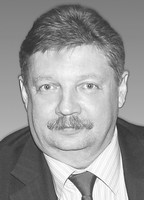Children's and youth sports: basics of training process quality assurance technology and research
Фотографии:
ˑ:
Teoriya i praktika fizicheskoy kultury №8 2017, pp.21-24
Dr.Hab., Professor, Honoured Worker of Higher Education of the Russian Federation V.P. Guba
Russian State University of Physical Education, Sports, Youth and Tourism (GTSOLIFK), Moscow
The study considers the basics of the training process quality assurance technology in application to the children’s and youth sports and customised to the trainees’ individual anthropometric and functionality rates, plus effects of the technology in the period of age-specific biological transformations. The study gives and analyses the elementary body growth data in the junior athletes’ ontogenesis.
The authors came to conclusion that the training process customisation to the children’s individual anthropometric and functionality rates based on integrated knowledge of the latter make it possible to control the body development process to design and manage the long-term education and training process on a most efficient basis, qualify promising athletes and secure their good and persistent competitive progress.
Keywords: children's and youth sports, research quality efficiency, training process assessment.
References
- Abramova T.F. Paltsevaya dermatoglifika i fizicheskie sposobnosti. Dis. dokt. biol. nauk [Finger dermatoglyphics and physical abilities. Doct. diss. (Biol.)]. Moscow, 2003, 298 p.
- Bal'sevich V.K. Ontokineziologiya cheloveka [Human Ontokinesiology]. Moscow: Teoriya i praktika fiz. kultury i sporta, 2000, 275 p.
- Bakhrakh I.I. Sportivno-meditsinskie aspektyi biologicheskogo vozrasta podrostkov [Sport-medical aspects of biological age of adolescents]. Smolensk: SSAPCST publ., 2009, 124 p.
- Bulgakova N.Zh. Otbor i podgotovka yunyih plovtsov [Qualification and training in youth swimming]. Moscow: Fizkultura i sport, 1978. 152 p.
- Volkov V.M., Filin V.P. Sportivnyiy otbor [Sports qualification process]. Moscow: Fizkultura i sport, 1986. 192 p.
- Guba V.P. Talant i kriticheskie tochki genotipa [Talent and critical points of genotype]. Moscow: Nauka i zhizn', 2013, P. 33.
- Guba V.P. Detskaya odarennost' i talant: integral'naya otsenka, analiz diagnosticheskikh metodov [Children's giftedness and talent: integrated assessment, analysis of diagnostic methods]. Izvestiya Rossiyskoy akademii obrazovaniya. Moscow, 2015., no. 3 (35)., pp. 71-78.
- Guba V.P. Osnovy sportivnoy podgotovki [Fundamentals of sport training]. Moscow: Sovetskiy sport, 2012, 384 p.
- Guba V.P., Marinich V.V. Teoriya i metodika sovremennyih sportivnyih issledovaniy [Theory and methods of modern sports research]. Moscow: Sport, 2016, 232 p.
- Zaporozhanov V.A. Kontrol v sportivnoy trenirovke [Control in sports training]. Kiev: Zdorovye, 1988, 144 p.
- Platonov V.N. Periodizatsiya sportivnoy trenirovki: obshchaya teoriya i ee prakticheskoe primenenie [Periodization of sports training: general theory and its practical application]. Kiev: Olimpiyskaya literatura publ., 2013. 623 p.
- Schwarz V.B., Khrushchev S.V. Mediko-biologicheskie aspektyi sportivnoy orientatsii i otbora [Biomedical aspects of sports orientation and qualification]. Moscow: Fizkultura i sport 1984. 151 p.
- Chtetsov V.P. Somaticheskie tipyi i sostav tela u muzhchin i zhenschin. Avtoref. dis. dokt. biol. nauk [Somatic types and body composition in men and women. Doct. diss. abstract (Biol.)], 1978, 40 p.




 Журнал "THEORY AND PRACTICE
Журнал "THEORY AND PRACTICE